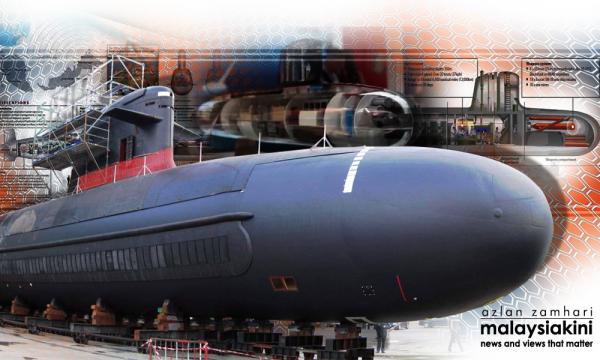LETTER | Malaysia’s Defence White Paper 2019 was tabled and passed in Parliament on Monday. This was a historic moment as it was the first time that our country had published such a document.
It was the culmination of a year’s hard work by a dedicated team made up of officers from the Ministry of Defence, the Malaysian Armed Forces (MAF) and academics, alongside consultations with various stakeholders including other ministries, veteran groups, think-tanks and civil society organisations.
What was supposed to be cause for celebration, however, was tainted by ‘criticism’ of Sembrong MP Hishammuddin Hussein, who took the floor to express his "disappointment" with the document.
Unfortunately, he had not been able to substantiate his arguments, but instead just dwelled in a shallow polemic.
After all, this is an ex-defence minister who throughout his tenure from 2013 to 2018 did not even bother to update the 2006 National Defence Policy.
For 13 years our country had not had a clear direction on national defence, considering the evolving security threats and geopolitical dynamics.
Firstly, a distinction must be made between a White Paper and other government documents such as the 2006 National Defence Policy. Unlike a National Defence Policy or a Capability Plan, which could contain classified information, a White Paper is more of a statement of intent which is supposed to outline the policy direction of the government on defence matters over the next 10 years.
Naturally, it would not contain specific details that might jeopardise our national security. The fact that it is open to the public also means that that the government is subjecting itself to scrutiny in the spirit of transparency, and hence must be followed up with actions.
Secondly, the White Paper is an opportunity for us to review our national security outlook. The White Paper firmly positions Malaysia as a maritime nation with continental roots and a bridging linchpin between the East and West.
This is a new way to look at our geographic advantages and disadvantages as a small state in Southeast Asia and hence our opportunities and challenges, which have never been articulated before.
This outlook informs the way we think of our force structure. For far too long, our maritime and cyber domains have not been given enough emphasis as we are traditionally a land-centric force due to our historic legacy of fighting the Communist insurgency.
Going forward, the Malaysian Armed Forces must relook at their force structure and transform with the times to ensure their continued readiness in the face of future security challenges.
With technological modernisation also comes the need to develop talents to manage increasingly sophisticated equipment. This is why the White Paper also stated the aspiration to develop a "Smart Force", attracting the right talents and making the military a career of choice among Malaysians.
Along with these are also the mentions of strengthening the role of our reservists, increasing women participation in the military, helping veterans to get second careers and the importance of civil-military relations.
Thirdly and perhaps most importantly, the White Paper has shown the way for more accountability and transparency in policy planning and procurement. One of the commitments stated in the White Paper is a joint capability development plan, which will be jointly developed by all three services of MAF, the Ministry of Defence and other related ministries.
It means that from now on, our defence planning will no longer be a vendor-driven process, but will be systematic and forward-looking based on real needs. No longer will there be political intervention that will result in the buying of expensive "toys" that we do not need, on advice by rent-seekers hoping to make a living from the government.
Instead of engaging defence contractors that are mere agents that bring no added value to the economy, we ought to invest in R&D and ensure technological transfers that can help our local defence industry.
The drafting process of the White Paper has undergone many rounds of consultations with stakeholders, including opposition MPs. It is not just a Mindef plan, but one that has been adopted by the cabinet and passed by Parliament.
This is how a matured democratic process looks like, something that did not happen when BN was in power.
Of course, our work is not done yet. The White Paper is merely a first step to a more accountable and transparent way of defence planning and governance.
The journey has just begun, and it requires the participation from all Malaysians.
The writer is special functions officer to Deputy Defence Minister Senator Liew Chin Tong.
The views expressed here are those of the author/contributor and do not necessarily represent the views of Malaysiakini.


